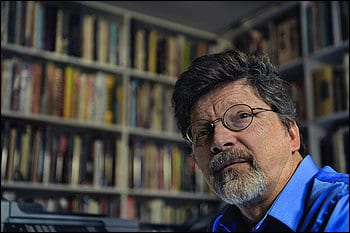Elizabeth Hazen Shares Her Tsundoku (Poetry books to Read)
In a new blog post, Elizabeth Hazen shares her tsundoku. Tsundoku is a Japanese word meaning "Acquiring reading materials but letting them pile up in one's home without reading them."

For Christmas, which seems like three lifetimes ago, my parents gave my husband a book of interesting words from around the world*. An engineer who has a soft spot for spoonerisms, puns, and wordplay in every form, he found instant delight in this book. Did you know that Germans have a word for the weight we gain from stress-eating? Kummerspeck. Or that the Scots have a word for that awkward pause when you’ve forgotten the name of the person you’re introducing? Tartle. Among my favorites are the whimsical Swedish smultronställe, a place of wild strawberries; the romantic Italian dormiveglia, the space between sleeping and waking; and the essential Japanese tsundoku, that pile of unread books on my bedside table that grows with each passing month.
Needless to say, I took that book of words from my husband, adding one more to my stack...
Featured Audio: “Achilles on Shore,” a reading by Rose Solari
Rose Solari reads “Achilles on Shore” “No one reads poetry like Rose Solari. She enters the essence of each word with a voice, making meaning become spirit. I think her […]
Featured Audio: “Jesse Lancaster Remembers,” a reading by James J. Patterson
James J. Patterson reads “Jesse Lancaster Remembers” from Roughnecks “[Reading James J Patterson] is like sitting down with a very intelligent friend and having the kind of conversation you’d always wanted […]
[Richard Peabody] His Great Feature in The Washington Post
Richard Peabody has spent most of his adult life nurturing and promoting Washington’s literary output. Gargoyle, a thick doorstop of a literary magazine that he has published since 1976, has amassed a list of distinguished contributors, including eight National Poetry Series winners, five National Book Award winners, three PEN/Faulkner winners, three Pulitzer Prize winners, and winners of more than a dozen other honors. And he can count at least 30 former university, Writer’s Center and private creative writing students who have gone on to sell screenplays or publish books, including many with the most prestigious New York publishing houses.

